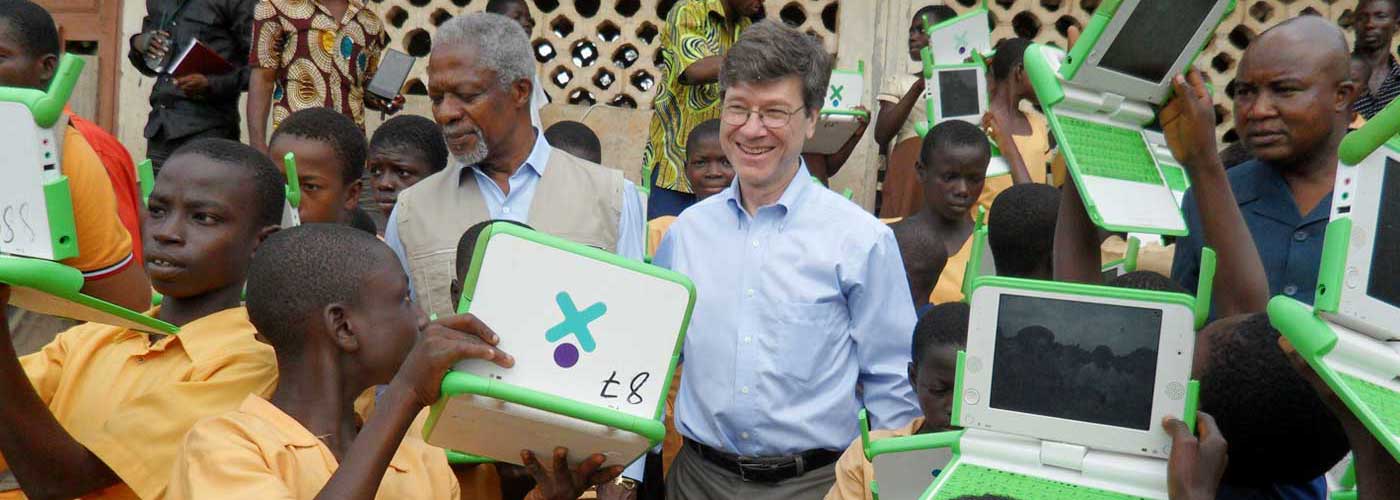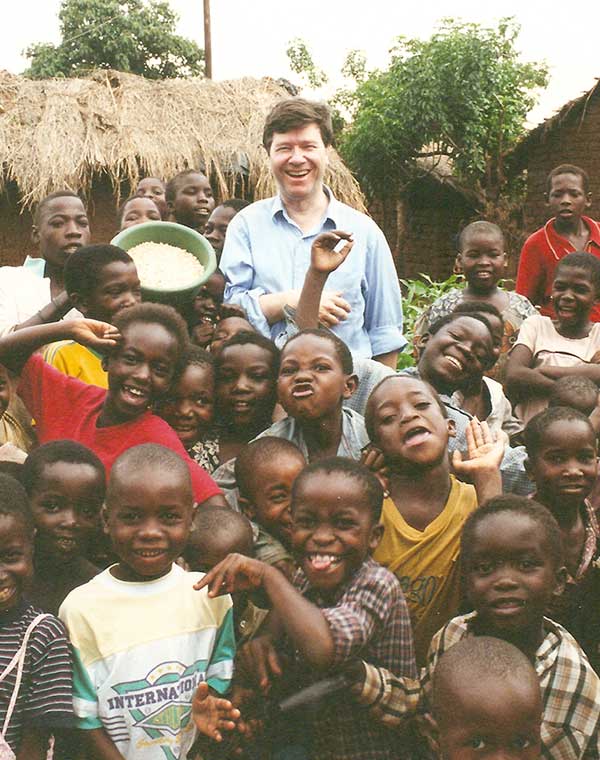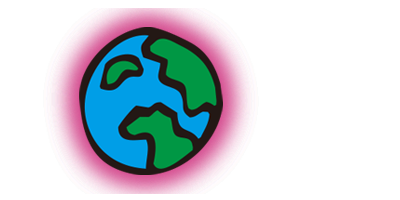4. Saving the Earth
Millennium Development Goals
8 The Millennium Development Goals (MDGs)
Before entering the 21st century, the 2000 UN Millennium Summit adopted the Millennium Declaration. This agreement for international cooperation in creating safer and more affluent living environments formed the basis upon which innovative Millennium Development Goals were established. The eight goals were seen as a set designed to solve serious problems in the world.
8 The Millennium Development Goals (MDGs)
In order to achieve the first goal, the eradication of extreme poverty and hunger, they also set the goal of cutting malnutrition and the proportion of people living on less than $1 a day in half. All 193 UN member states agreed to work toward achieving these goals.

On September 11, 2001, however, the terrorist attacks in the United States took place. The United States moved toward war. This brought dark clouds over the movement to make this world better in harmonious cooperation among countries.
Professor Sachs wanted to do something for international cooperation and asked Mr. Kofi Annan, Secretary-General of the UN, what he could do. Secretary-General Annan asked Professor Sachs to handle the UN's Millennium Project aiming to achieve the MDGs. Professor Sachs knew the value of these goals and decided to promote the project.
Shifting from MDGs to SDGs
The year 2015 was set for achievement of the MDGs. The MDGs were considered hard to achieve; however, we have achieved significant results. In regard to the first goal, the reduction of extreme poverty and hunger by half, we achieved better results than expected.

While there were eight MDGs, there are 17 SDGs. As with MDGs, the first goal of the SDGs is the ending of poverty in all its forms everywhere. Professor Sachs wants to disseminate SDGs globally and hopes that people will work together to achieve them.
Professor Sachs has a solid belief, which is that a serious and continuous commitment will definitely help solve a problem no matter how difficult it is. Why don't you believe his words and try to overcome the challenge you're facing?
- Editor-in-chief
- Itaru Yasui, Former Vice-Rector, United Nations University / Professor Emeritus, The University of Tokyo
Address from the Editor-in-Chief - Editorial supervisors
- Ayumi Onuma, Professor, Department of Economics, Keio University;
Rintaro Yamaguchi, Program-Appointed Associate Professor, Graduate School of Economics, Kyoto University - (Affiliation is at that time of release.)









